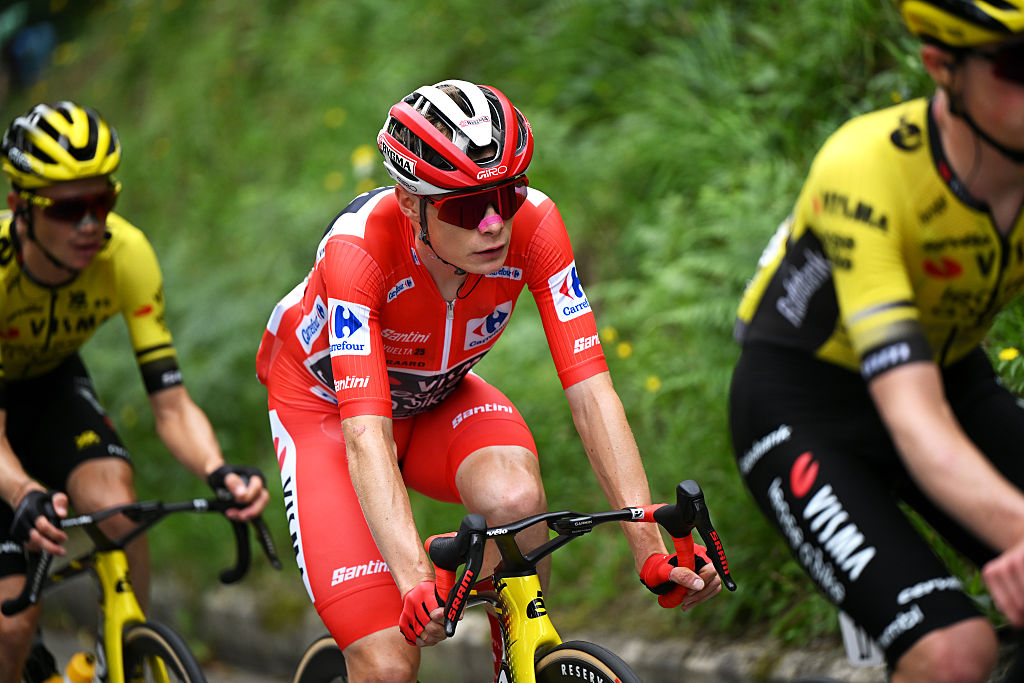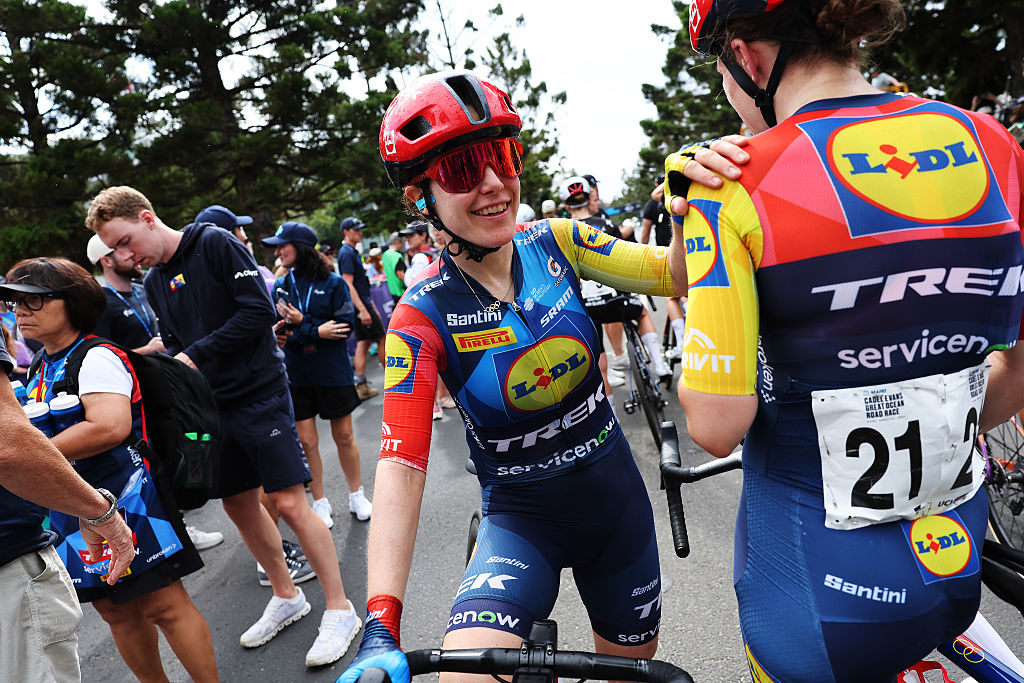'This might be the last time we have a stage winner' - Jonas Vingegaard pessimistic about Vuelta a España after pro-Palestine protests paralyse race
Race leader says no feeling of danger as Vuelta grinds to near-halt

The latest race content, interviews, features, reviews and expert buying guides, direct to your inbox!
You are now subscribed
Your newsletter sign-up was successful
Vuelta a España leader Jonas Vingegaard has said that there is no way of knowing what will happen in the race in the days to come after pro-Palestine protestors caused stage 11 to come to a halt three kilometres from the line.
Vingegaard said he had been unaffected by the demonstrators throughout the 157.4-kilometre stage looping round the Basque seaport of Bilbao, praising police for their efforts to keep the more unruly elements of the roadside protests.
However, he was not happy, either, that the demonstrators were targeting the race, calling it "the wrong place for them to protest."
The most recent partial suspension in the Vuelta of a stage was in 2023, when bad weather in Barcelona saw the GC times taken at nine kilometres to go. However, the race failing to reach the finish is a far more unprecedented event, as seen in nearby San Sebastian in 1978, where the Vuelta had to suspend its final stage completely due to political protests.
"This might be the last time we'll have a stage winner in this Vuelta," Vingegaard openly speculated to Danish TV channel TV2, presumably referring to the previous day's stage finish at Larra Belagua, given there was no winner in Bilbao.
"It's unpredictable what will happen in the coming days. I hope we can keep racing, because this is the wrong place for them to protest. What do they want from us cyclists? I can't do anything."
However, although the protests were clearly visible throughout the stage and at one point Tom Pidcock (Q36.5) had to duck under a banner after protestors ran into the road, Vingegaard said he didn't feel too closely affected.
The latest race content, interviews, features, reviews and expert buying guides, direct to your inbox!
"To be honest, I think the police did a good job today. The first time we crossed the finish line, we saw protesters trying to get onto the road. The police were able to stop them there. And on the penultimate climb, they (pro-Palestine protesters) tried to stop us, but we were able to get past easily. Other than that, I didn't really feel unsafe."
Rather than reaching the finishing gantry, Vingegaard and fellow-breakaway rider Pidcock simply eased up three kilometres from the line, where times were taken for the GC contenders. There was no stage winner.
Like all the other riders in the peloton, the Dane then rolled through the streets of Bilbao before heading to the team bus and going through the usual post-stage routine: a brief clamber onto the bus, back onto the rollers for a 15-minute warm-down, then talk to the media. The race, even in the most surreal situations, continued.
Directors and riders also spoke to the press as usual. But with roughly 15 armed police, some with riot shields down and helmets down, deployed around the Israel-Premier Tech team bus directly opposite, it was clear this was anything but a normal day.
"The atmosphere is mixed because we really wanted to go for this stage, everybody could see what was happening on the screen, so of course it was mixed," sports director Jesper Morkov told Eurosport afterwards.
"We couldn't race for the win because we could see what was happening on the road, we could also see it in the car, that's how it is."
Vingegaard and Visma-Lease a Bike had put in some notably aggressive racing towards the finale, keeping the break of the day, including UAE Team Emirates-XRG rider Marc Soler, under control.
Possibly the most striking aspect of what little racing there was in the finale came when Pidcock (Q36.5) briefly managed to drop Vingegaard on the Alto de Pike, the last of seven climbs.
But in a day where racing was probably the last thing on most riders' minds, the key questions to Morkov were about how the race organisation handled the chaos unfolding in the finish, with the teams and riders out on the road
"The communication from race organisers was really clear, we got clear communication from then, we communicated it to the riders," Morkov said "It is not up to us to say what is wrong and what is right, that is what happened."
Morkov said that the news that the stage had been partly cancelled came through on the race radio on the flat part of the course before the final ascent to the Pike.
"We would have liked to race for the win, but we also saw pictures on the TV," he said drily, "so that's how it is."
Subscribe to Cyclingnews for unlimited access to our 2025 Vuelta a España coverage. Our team of journalists are on the ground from the Italian Gran Partida through to Madrid, bringing you breaking news, analysis, and more, from every stage of the Grand Tour as it happens. Find out more.
Alasdair Fotheringham has been reporting on cycling since 1991. He has covered every Tour de France since 1992 bar one, as well as numerous other bike races of all shapes and sizes, ranging from the Olympic Games in 2008 to the now sadly defunct Subida a Urkiola hill climb in Spain. As well as working for Cyclingnews, he has also written for The Independent, The Guardian, ProCycling, The Express and Reuters.
You must confirm your public display name before commenting
Please logout and then login again, you will then be prompted to enter your display name.

